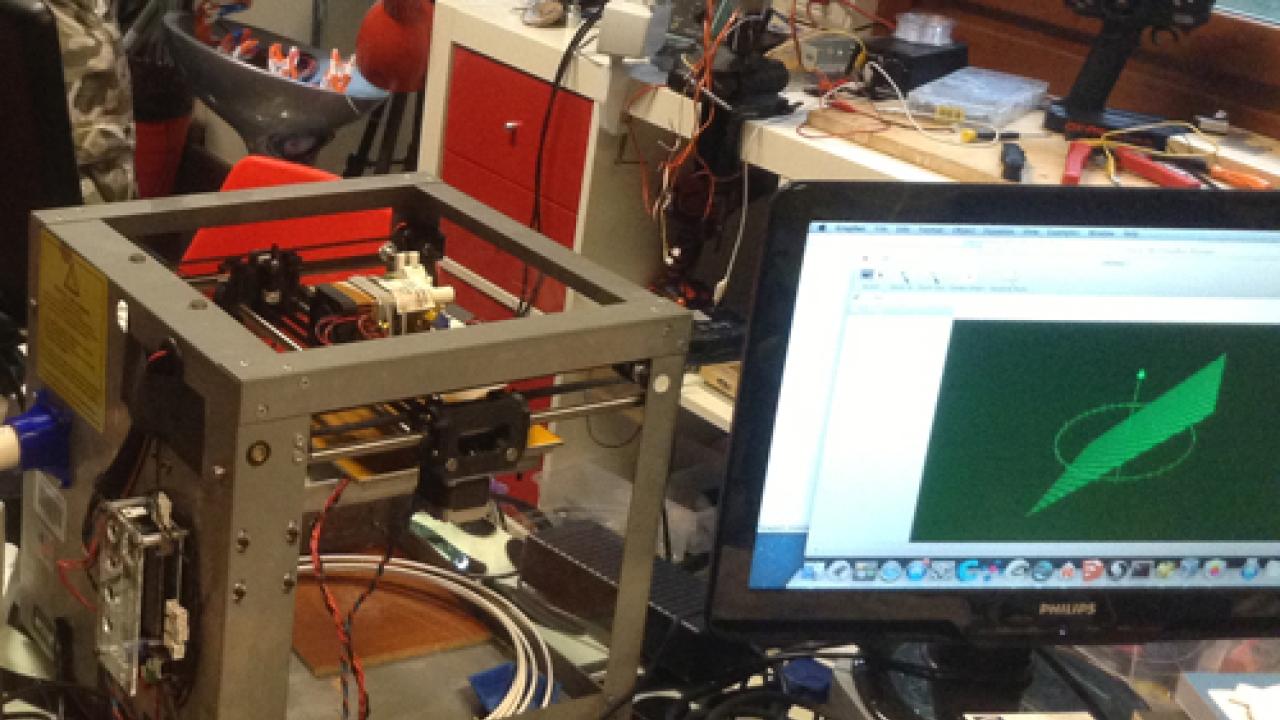
ICTP has announced plans to expand its 3D Printing Lab into a
full-fledged creative space for people to design and build digital
products with low-cost equipment.
The experimental space, known as a "fabrication laboratory" (or
FabLab), provides small-scale manufacturing equipment such as laser
cutters, low-cost 3D printers and printed circuit board milling
machines for making "almost anything", and is considered a key
asset for developing new technological ideas and prototypes.
"ICTP's FabLab will play a significant role as a focal point to
support the creative work of scientists and scholars," says Enrique
Canessa, coordinator of ICTP's Science Dissemination Unit (SDU),
which manages the Centre's 3D Printing Lab. He explains that FabLab
is to be devoted to creativity, invention and research, and
that it will be open to all ICTP scientists and external
subscribers for the benefit of the whole society. He says that
collaborations with the Science Centre Immaginario Scientifico and
other interested entities and sponsors for this project are
underway.
FabLabs will be shown and discussed during the first Trieste Mini Maker Faire that
will be held on 17 May at ICTP .
SDU has been a pioneer in using innovative, low-cost technologies
to transfer scientific knowledge and education to and from the
developing world. A year ago they launched ICTP's 3D Printing
Lab with low-cost technologies. This activity was further supported
by the First International Workshop on Low-cost 3D Printing for
Science, Education and Sustainable Development, together with the
publishing of a popular open book on the topic that has been then
translated into multiple languages.
FabLabs are becoming of special relevance to scientists in
developing countries because they can offer powerful new ways to
carry out research and facilitate the creation of new ideas at
affordable costs.
"We foresee that ICTP's FabLab will be exported to the developing
world, specially across the ICTP's research networks, and extended
to empower scholars, scientists, and individuals there," says
Canessa, adding, "Such FabLabs will help them in designing,
discussing and creating innovative low-cost devices, such as
inter-linked tiny sensors to gather data from multiple places with
the use of Arduino microcontrollers. The field of interaction
between man and machine is also of special research interest within
FabLabs."
For more details, please contact SDU.
















